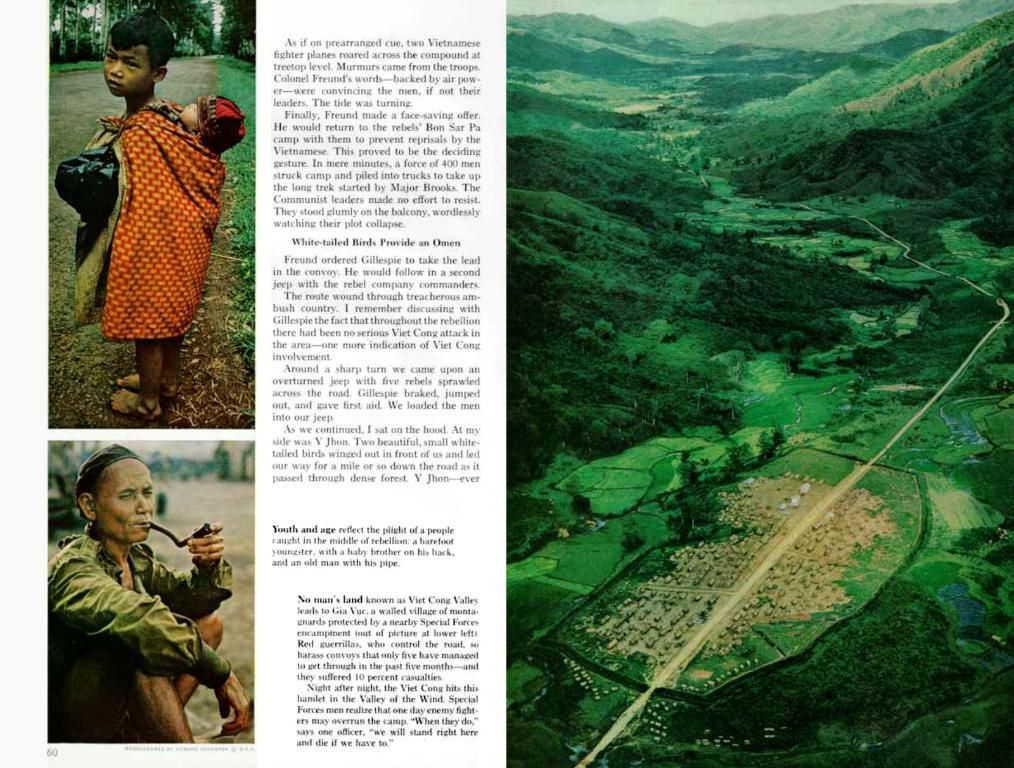Metal recycling revolution in Japan: MATEC's advanced plant puts Japan on the map
Japan's Top Dog in Innovative Cable and Stainless Steel Reuse Techniques
MATEC Inc., Japan's leading metal recycling company, has broken new ground with the commissioning of a cutting-edge vehicle shredder residue (ASR) processing plant in Tomakomai, near Sapporo. This state-of-the-art facility, boasting an impressive annual capacity of 30,000 tonnes, is the largest of its kind in Japan, and a testament to the country's pioneering position in advanced technology and high recycling rates.
The heart of this groundbreaking facility lies in MATEC's strategic partnership with STEINERT, a global leader in advanced sorting technologies. This alliance enables MATEC to effectively separate various material streams, ensuring maximum resource recovery.
Boosting MATEC's Metal Processing Capabilities
The MATEC Recycling and Baler (RBA) facility collects and refines light shredding fractions (LSF) and Zorba materials from six other MATEC plants. The facility features two distinct sorting lines tailored to different material streams and target metals. The first line focuses on stainless steel and heavy metals, while the second concentrates on separating metals from a light fraction. Even the smallest particles, less than 6 mm, contribute to the recycling stream, thanks to STEINERT's advanced technology.
Focusing on Precision and Recovery
The primary goal of the Tomakomai plant is to recover stainless steel and cables (copper) from automotive shredder residue. The heavy fraction line processes materials in different granulometries and passes them through multiple sorting stages. The facility employs advanced separation technology, including non-ferrous metal separators, upstream magnetic separators, STEINERT ISS induction sorting systems, and high-tech STEINERT KSS CLI combined sorting systems with a combination of induction, 3D, and color detection sensors.
For fractions of 6-30 mm, the focus is on extracting copper. STEINERT ISS and KSS CLI systems are used to efficiently isolate the cable fraction. Materials finer than 6 mm pass through a separate sorting process where metals, particularly Zorba, are targetedly separated.
Reimagining Efficient Light Shredding Fraction Processing
The system also relies on technological precision when processing light shredding fractions. Fractions below 25 mm and above 25 mm each pass through non-ferrous metal separators and induction sorting systems that reject all metals. These metal concentrates are then processed in a downstream system with X-ray transmission (XRT). The residual fractions, composed of plastic, rubber, and similar materials, are used as fuel for the local cement industry, contributing to resource-efficient recycling.
A Perfect Blend of Quality and Innovation
The partnership between installation manufacturer Zenki and STEINERT has resulted in exceptional craftsmanship. The RBA plant in Tomakomai showcases a harmonious combination of technological innovation and durability. By building a plant that sets new standards in the processing of automotive shredder residue, MATEC underscores its role as a pioneer in the recovery of valuable raw materials.
The MATEC plant in Tomakomai demonstrates the potential of advanced sorting solutions, ensuring efficient recovery of valuable metals from automotive shredder residue while optimizing resource efficiency. MATEC's commitment to sustainable development and its "I ❤️ RECYCLE" motto position the company as a global leader in recycling, inspiring other companies to join the journey towards a resource-respecting future.
- MATEC's partnership with STEINERT, a global leader in advanced sorting technologies, enhances the company's metal recovery capabilities in Japan, particularly in the environmental-science sector of automotive shredder residue processing.
- The commissioning of MATEC's advanced plant in Tomakomai incorporates advanced technology from STEINERT, such as non-ferrous metal separators, induction sorting systems, and color detection sensors, to optimize the recovery of valuable metals like stainless steel and copper from vehicle shredder residue.
- By implementing strategies that blend advanced technology with a commitment to environmental sustainability, MATEC, a leading metal recycling company, is redefining the industry's landscape in Japan and setting an example for other companies to focus on resource-efficient recycling and maybe even inspire similar initiatives in the finance sector to invest in recycling technologies for a greener future as a part of corporate social responsibility.




